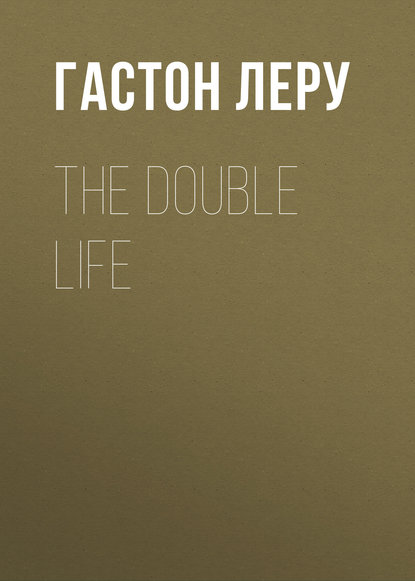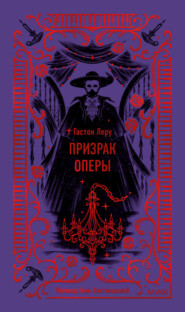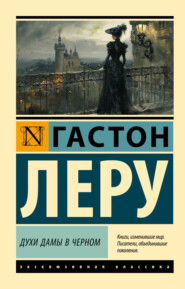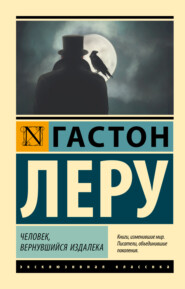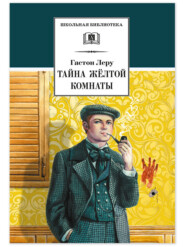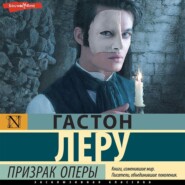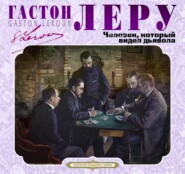По всем вопросам обращайтесь на: info@litportal.ru
(©) 2003-2024.
✖
The Double Life
Автор
Год написания книги
2018
Настройки чтения
Размер шрифта
Высота строк
Поля
“Speak louder, I tell you. I can move my arms now, but I cannot stir my legs. They won’t move, and my feet pain me very much.”
He then put his hand to his mouth and said: “Why, what have you done with my teeth? You put me to sleep to fix my teeth, and you have taken them from me.”
It was curious that while he was asleep, even after he had lost his teeth, he spoke distinctly. It was evident that he could not move, and Mme. Longuet removed the clothing to rub his stiff limbs. To her sorrow she found his clothes all torn, and on looking closer saw all the flesh on his limbs lacerated. His legs and feet were boiled. The flesh was torn away in some places, and burned horribly in others. M. Eliphaste, with trembling hands, removed the clothing from his chest, and there they saw, over the heart, two spots of black blood. His biceps bore fresh marks of frightful torture.
Mme. Longuet sobbed loudly, and sat with lowered head, looking at the horrible sight. Adolphe ran to get a carriage. It was evident that Théophraste could not walk or move. On his return, Théophraste was still complaining of the pain. Adolphe, with the assistance of the carriage driver, carried him out into the street. They lifted him carefully on the mattress, and walked slowly out, followed by the weeping Marceline.
M. Eliphaste prostrated himself on the ground, and with his hands clasped and elbows on the floor, cried out with a voice full of sorrow: “My beloved! My well beloved! I believed that I was Your son. Oh, my well beloved! I have taken Thy shadow for Thy light. Thou hast crushed my pride. I am in the dark, at the bottom of an abyss-I, the man of light-and I have hated it. I am only the son of silence. Eon! Source of Eon! Oh, life! To know life! To possess life!”
And thus, as they went out into the pure air, they left him praying.
CHAPTER XXII
Visits to a Butcher’s Shop
THEOPHRASTE’S bones were not broken, and it only took six weeks to heal, although he was obliged to keep to his bed for two months, when he regained the use of his legs. During all this time he did not make a single allusion to the past. Cartouche was dead-quite dead. The operation had been successful, although very painful. So much so, that every one dreaded that he would remain a cripple to the end of his life; but he had recovered marvelously. He had obtained a new set of teeth, and was able to speak quite plainly, but it was a more difficult thing to rid himself of the effects of the boiling water in his ears, and at times he was perfectly deaf.
After a while Théophraste thought of occupying his mind by going back into business. He had retired when young, being able to live on the income derived from several inventions which he had made for the use of rubber stamps.
However, they were all very thankful for the result, and this slight inconvenience did not worry them.
It was his habit to rise early, and after breakfast he would go out for a little walk to strengthen his legs. He soon found their old elasticity, and regained their full use. On these occasions Adolphe used to follow a short distance behind in order to watch his movements and report to M. Eliphaste.
At first he noticed nothing abnormal in his behavior, and in his report contented himself with stating this unimportant fact, that he stopped quite a while before a butcher’s stall. If this had occurred only once, it would have passed the watchful Adolphe unnoticed. However, it became a regular thing for Théophraste to stand looking at the bloody meat, and spend some time talking to the butcher, a square-shouldered, florid fellow, always ready with a jest.
One day, when M. Lecamus had decided that Théophraste had spent too much time at the butcher’s shop, he came up to him, as if by chance, and found him, with the butcher, decorating all the fresh meat with curl papers. This was innocent enough. Thus judged M. Eliphaste, although he wrote in the margin of the report:
“He may look at the meat in the butcher’s shop. It is good to let him see blood sometimes. It is the end of the crisis, and can do no harm.”
This butchery was a small one, and had its specialty. M. Houdry sold among other ordinary meats a special quality of veal. The secret of this quality lay in the way it was killed. The majority of Paris butchers obtain their meat from the abattoirs, but M. Houdry always bought his alive, and killed it himself, in his own way. He was not satisfied to knock the calf in the head, as they did at the abattoirs. He bled it after the Jewish manner, with a large knife which he called the bleeder, and so dexterous had he become in this art that he never had to cut the same wound twice. He had gained some reputation as a good butcher.
M. Houdry had explained the case about his veal to M. Longuet, with the greatest mystery, and he had evidently taken great pleasure in it- so much so that Théophraste, after having listened to the theory, had shown the desire to assist at a practical lesson. In a small court adjacent to the store, M. Houdry had a secret abattoir. On a certain morning, Théophraste, who happened there at a much earlier hour than was his custom, found his man at the abattoir with a calf. The butcher begged him to come in, and to close the doors behind him. “I shut myself up every day thus with a live calf,” said M. Houdry, “and when the doors of the abattoir are opened again, the calf is dead. I lose no time; I have operated in twenty-five minutes.”
Théophraste congratulated him. He asked him many questions, interesting himself in all the objects which struck his attention. The bellows with its large arms drew his attention. He also saw a windlass. He learned that that strong oak cross-bar, with pegs in it, supported the windlass and the bucket. He admired the solid oak hand-barrow also. A chopper which was drawn up was called a “leaf.” But that which interested him more was a set of tools hung on the walls in the shop. In this “shop,” which was sort of saddle-bags for cutlass, he saw first of all the bleeder, and was pleased to pass his finger over the long, strong and sharpened edge. Then there was a much smaller knife, called the “Moutoniner,” used ordinarily to cut up mutton, as the name indicates, but which was used there to cut certain parts of veal. Then some other small knives, among which was the canut, used in “flowering” the veal. “Flowering” the veal consists in making light, artistic designs on the shin of the veal, as soon as it is bleached.
The first day M. Longuet received instructions about the tools. But in the following days he learned the art of the whole operation, and entered into each detail with little repugnance. He used to say, some days, in going away, jestingly: “You kill a calf every day; you must be careful, my dear M. Houdry, you see it will end by its becoming known to the other calves.”
Théophraste was not idle, either. Whenever he had an opportunity he would help M. Houdry in these killings. One day the assistant did not come, and Théophraste helped rope up the calf for killing. As he was doing this, M. Houdry remarked on the evil of killing the calf by striking him on the head, as they did at the abattoir.
Théophraste declared it was a crime, and most inhuman. “It is much finer to do it with the bleeder. One blow is sufficient, and the head is off. What a fine death. How the blood flows, and with what dispatch does he die.”
“Ah,” said Théophraste, who had killed the calf, “see the calf’s eyes, as the blood flows. How they stare at you. They are dead, but they look at you!”
“What is the matter with the calf’s eyes?” demanded M. Houdry. “They are like the rest. Ah, you think it is a joke? Well, well, you are not so used to it as I.”
M. Houdry then prepared the meat for selling, and while he was doing so Théophraste took the head, cleaned it and cut out the eyes. The sight of the blood had excited him beyond control, and M. Houdry was amused when he desired to take the head and feet home with him.
In parting he said: “Au revoir, M. Houdry, au revoir. I will take the head away with me, but I leave you the eyes. I do not like eyes to stare at me. You must not laugh at me, though. You do not understand me. However, it is my affair, and you must be glad that you are not afraid of dead eyes staring at you.”
And so he returned home, and when he appeared at the door of his house with the calf’s head under his arm, Adolphe and Marceline smiled, saying: “He is amusing himself with some innocent prank.”
CHAPTER XXIII
A Newspaper Report
IT had become their habit in the Longuet flat to play dominoes in the evening. M. Adolphe was a good player, and always he used the Norman provincial names. When he played the double six, he would call the “double negro”; the five was “the dog that bites,” and so on. Marceline was always amused by these terms, and was always ready to play.
It happened on this particular evening that Théophraste lost his game, and after a short argument he began to sulk, and refused to play more. Seating himself in a chair near the window, he began reading the paper. He had strong political opinions.
Suddenly he was attracted by a strange headline. He read it and re-read it, and could not resist an exclamation. “Strange! Is not Cartouche dead, then?”
He could not help smiling. This hypothesis was so absurd. Then he ran over the first lines of the article and said: “My dear Adolphe, have you read this article? ‘Is not Cartouche dead, then?’ It is a strange, a surprising article.”
Adolphe and Marceline could hardly prevent a start, and looked at him with uneasiness.
Théophraste began to read the article aloud, as follows:
“‘For some days the police have been occupying themselves with one of the greatest of mysteries that have occurred in Paris, and with a series of odd crimes. They are endeavoring to hide from the public the most curious sides. Those crimes and the manner in which their perpetrator escapes from the police at the moment they think they have him, recall, point by point, the manner in which the celebrated Cartouche committed his crimes. If he was not enacting a thing so reprehensible, one could admire the perfect art with which the model is imitated. It is Cartouche to a finish! The police themselves have never dealt with a more mysterious bandit. Nevertheless, the administration, very mysteriously, but, we admit, very intelligently, has sent by some of them an abstract of Cartouche’s history, compiled from the manuscripts of the National Libraries. They thought, subtly, that the history of Cartouche would be useful to them, not only in the present task, which is to prevent the criminal outrages of the new Cartouche, and to arrest him, but also that Cartouche’s history ought to form a part of the general instruction to all the agents of police.
“‘Finally the news was brought to us that M. Lepine, Prefect of Police, has ordered them to devote several evenings in the Prefecture to listen to lectures on the authentic history of the illustrious bandit.’
“What do you say to that?” demanded Théophraste with merriment. “It is a merry farce, and the journalists are great fellows to issue such fibs.”
Neither Adolphe nor Marceline smiled. Marceline’s voice trembled slightly when she begged Théophraste to continue. He began to read again quietly:
“‘The first crime of the new Cartouche did not at all present the horror that we shall find in some of the others. It was a polite crime. Let us say at once that all the crimes of which we have any knowledge, and which they attribute to the new Cartouche, have been accomplished in the last fifteen days, at the North, and always from eleven o’clock in the evening to four o’clock in the morning.’”
Mme. Longuet rose, very pale. M. Lecamus made her sit down again, by a knowing shake of the head, and commanded her to be silent.
Théophraste said: “What is this that they want to tell with their new Cartouche? As for me, I only know the old one. After all, let’s see the gallant polite crime,” and he read it over more and more calmly:
“‘A pretty woman, well known in Paris, where her literary salon is frequented by all those who interest themselves with debates and with matters spiritualistic, was proceeding, toward morning, with her toilette for bed, and preparing to take a well-earned rest, following the fatigue which had wearied her that evening there with the disorder of a conference at home of the most illustrious of our pneumatics, when suddenly the casement of her balcony was opened quickly by a man with a figure a little over the medium, still young and vigorous (this last is in the report of the police), but with perfectly white hair. He had in his hand a brilliant nickel revolver.
“‘"Madame,” said he to the terrified woman, “compose yourself. I do not wish to do you any evil. Consider me the most humble of your servants. My name is Louis Dominique Cartouche, and I have no other ambition than to sup at your side. By the tripes of Mme. de Phalaris, I have the hunger of all the devils!” and he began to laugh.
“‘Mme. de B.-let us call her Mme. de B.– believed that she was dealing with a crazy man, but he declared he was only determined to take supper with her, which peculiar favor he had long desired. That man was much more dangerous than a crazy man, for it might be necessary to kill him on account of the brilliantly nickeled revolver.
“‘"Go,” said the man, “and call your people, and tell them to bring here to you a good supper. Do not give them a single explanation which would be likely to cause me any embarrassment or trouble, for if you do you will be a dead woman.”
“‘Mme. de B. then took her departure, for she was brave, with a mind sufficiently elevated to enable her to face the most unexpected adventures. She rang for the chambermaid, and a quarter of an hour later the man with the white hair and Mme. de B. were seated opposite each other in proper style, and apparently the best of friends. The supper was prolonged through the night (we do not wish to affirm anything as to this point, which is so interesting-but are a little skeptical as to the veracity of this story), so that the man did not descend by the sheet from the balcony until about sunrise. The beautiful Mme. de B. had not had supper, and so she did not complain about that forced supper, which she ended by partaking of in very good grace, nor had she seen the necessity of reporting her adventure to the Police Commissioner. And we see what the circumstances were. Some days later the Commissioner was announced at Mme. de B.’s. He told her that the ring that she wore on her finger, in which a magnificent diamond glittered, was the property of Mlle. Emily de Bescancon. Mme. de B. was of course ignorant of its value-or where it came from. It had been presented to her. But Mlle. Emily de Besancon, who had seen it on the finger of Mme. de B. the day before at a charity sale, claimed it formally as hers. She had furnished all sorts of proofs of it, and the diamond was set in such a unique way that there could be no doubt of it. Mme. de B. was infinitely troubled, and was obliged to relate the adventure which had befallen her. She spoke of the unknown, of the balcony, of the supper, of the gratitude he had shown her for his supper, and his placing the magnificent diamond on her finger, which he had obtained, he said, from a woman he had loved very much, a Mme. de Phalaris, who had been dead for some time. Mme. de B. could not be suspected. She furnished a proof-the nickel-plated revolver that the unknown had left on the table that night. Finally she begged the Commissioner of Police to take away from her house the hundred bottles of champagne of every choice brand that the unknown had sent to her the day after the eventful night, under the pretext that the supper had been exquisite, and that the only thing that could have been desired was champagne. She feared that the champagne, as well as the ring, had been stolen. The Commissioner acquitted the beautiful Mme. de B. He could do nothing at the time, the news being in everybody’s mouth, as the world at large would henceforth interest itself in the new Cartouche.
“‘This little adventure, which is the least important of those we have to relate, is the reproduction of what happened on the night of the 13th of July, 1721, at the house of Mme. la Maréchale de Boufflers. She also was occupied in making her toilette. The young man, who came unexpectedly by way of the balcony, had no revolver in his hand, but he carried six English pistols. He demanded supper after presenting himself as Louis Dominique Cartouche, and the widow of Louis François, Duke of Boufflers, peer and Marshal of France, one of the heirs of Lille and of Malplaquet, supped with Cartouche, and late at night.
“‘Cartouche only complained of the champagne, and Mme. de Boufflers received a hundred bottles of it the next day. She had them taken, by her butler Patapon, into the cellars of a great financier.
“‘Some time after that one of Cartouche’s bands stopped an equipage in the streets of Paris. Cartouche leaned into the carriage to recognize the faces. It was Mme. la Maréchale de Boufflers. He turned toward his people. “Give them liberty to pass on, now and always, Mme. de la Maréchale de Boufflers!” ordered he in a ringing voice, and he bowed very low to the Maréchale, after he had slipped on her finger a magnificent diamond that he had probably stolen from Mme. de Phalaris. Mme. de Phalaris never saw it again.
“‘Now let us pass on to the crime in the Rue du Bac.’”
He then put his hand to his mouth and said: “Why, what have you done with my teeth? You put me to sleep to fix my teeth, and you have taken them from me.”
It was curious that while he was asleep, even after he had lost his teeth, he spoke distinctly. It was evident that he could not move, and Mme. Longuet removed the clothing to rub his stiff limbs. To her sorrow she found his clothes all torn, and on looking closer saw all the flesh on his limbs lacerated. His legs and feet were boiled. The flesh was torn away in some places, and burned horribly in others. M. Eliphaste, with trembling hands, removed the clothing from his chest, and there they saw, over the heart, two spots of black blood. His biceps bore fresh marks of frightful torture.
Mme. Longuet sobbed loudly, and sat with lowered head, looking at the horrible sight. Adolphe ran to get a carriage. It was evident that Théophraste could not walk or move. On his return, Théophraste was still complaining of the pain. Adolphe, with the assistance of the carriage driver, carried him out into the street. They lifted him carefully on the mattress, and walked slowly out, followed by the weeping Marceline.
M. Eliphaste prostrated himself on the ground, and with his hands clasped and elbows on the floor, cried out with a voice full of sorrow: “My beloved! My well beloved! I believed that I was Your son. Oh, my well beloved! I have taken Thy shadow for Thy light. Thou hast crushed my pride. I am in the dark, at the bottom of an abyss-I, the man of light-and I have hated it. I am only the son of silence. Eon! Source of Eon! Oh, life! To know life! To possess life!”
And thus, as they went out into the pure air, they left him praying.
CHAPTER XXII
Visits to a Butcher’s Shop
THEOPHRASTE’S bones were not broken, and it only took six weeks to heal, although he was obliged to keep to his bed for two months, when he regained the use of his legs. During all this time he did not make a single allusion to the past. Cartouche was dead-quite dead. The operation had been successful, although very painful. So much so, that every one dreaded that he would remain a cripple to the end of his life; but he had recovered marvelously. He had obtained a new set of teeth, and was able to speak quite plainly, but it was a more difficult thing to rid himself of the effects of the boiling water in his ears, and at times he was perfectly deaf.
After a while Théophraste thought of occupying his mind by going back into business. He had retired when young, being able to live on the income derived from several inventions which he had made for the use of rubber stamps.
However, they were all very thankful for the result, and this slight inconvenience did not worry them.
It was his habit to rise early, and after breakfast he would go out for a little walk to strengthen his legs. He soon found their old elasticity, and regained their full use. On these occasions Adolphe used to follow a short distance behind in order to watch his movements and report to M. Eliphaste.
At first he noticed nothing abnormal in his behavior, and in his report contented himself with stating this unimportant fact, that he stopped quite a while before a butcher’s stall. If this had occurred only once, it would have passed the watchful Adolphe unnoticed. However, it became a regular thing for Théophraste to stand looking at the bloody meat, and spend some time talking to the butcher, a square-shouldered, florid fellow, always ready with a jest.
One day, when M. Lecamus had decided that Théophraste had spent too much time at the butcher’s shop, he came up to him, as if by chance, and found him, with the butcher, decorating all the fresh meat with curl papers. This was innocent enough. Thus judged M. Eliphaste, although he wrote in the margin of the report:
“He may look at the meat in the butcher’s shop. It is good to let him see blood sometimes. It is the end of the crisis, and can do no harm.”
This butchery was a small one, and had its specialty. M. Houdry sold among other ordinary meats a special quality of veal. The secret of this quality lay in the way it was killed. The majority of Paris butchers obtain their meat from the abattoirs, but M. Houdry always bought his alive, and killed it himself, in his own way. He was not satisfied to knock the calf in the head, as they did at the abattoirs. He bled it after the Jewish manner, with a large knife which he called the bleeder, and so dexterous had he become in this art that he never had to cut the same wound twice. He had gained some reputation as a good butcher.
M. Houdry had explained the case about his veal to M. Longuet, with the greatest mystery, and he had evidently taken great pleasure in it- so much so that Théophraste, after having listened to the theory, had shown the desire to assist at a practical lesson. In a small court adjacent to the store, M. Houdry had a secret abattoir. On a certain morning, Théophraste, who happened there at a much earlier hour than was his custom, found his man at the abattoir with a calf. The butcher begged him to come in, and to close the doors behind him. “I shut myself up every day thus with a live calf,” said M. Houdry, “and when the doors of the abattoir are opened again, the calf is dead. I lose no time; I have operated in twenty-five minutes.”
Théophraste congratulated him. He asked him many questions, interesting himself in all the objects which struck his attention. The bellows with its large arms drew his attention. He also saw a windlass. He learned that that strong oak cross-bar, with pegs in it, supported the windlass and the bucket. He admired the solid oak hand-barrow also. A chopper which was drawn up was called a “leaf.” But that which interested him more was a set of tools hung on the walls in the shop. In this “shop,” which was sort of saddle-bags for cutlass, he saw first of all the bleeder, and was pleased to pass his finger over the long, strong and sharpened edge. Then there was a much smaller knife, called the “Moutoniner,” used ordinarily to cut up mutton, as the name indicates, but which was used there to cut certain parts of veal. Then some other small knives, among which was the canut, used in “flowering” the veal. “Flowering” the veal consists in making light, artistic designs on the shin of the veal, as soon as it is bleached.
The first day M. Longuet received instructions about the tools. But in the following days he learned the art of the whole operation, and entered into each detail with little repugnance. He used to say, some days, in going away, jestingly: “You kill a calf every day; you must be careful, my dear M. Houdry, you see it will end by its becoming known to the other calves.”
Théophraste was not idle, either. Whenever he had an opportunity he would help M. Houdry in these killings. One day the assistant did not come, and Théophraste helped rope up the calf for killing. As he was doing this, M. Houdry remarked on the evil of killing the calf by striking him on the head, as they did at the abattoir.
Théophraste declared it was a crime, and most inhuman. “It is much finer to do it with the bleeder. One blow is sufficient, and the head is off. What a fine death. How the blood flows, and with what dispatch does he die.”
“Ah,” said Théophraste, who had killed the calf, “see the calf’s eyes, as the blood flows. How they stare at you. They are dead, but they look at you!”
“What is the matter with the calf’s eyes?” demanded M. Houdry. “They are like the rest. Ah, you think it is a joke? Well, well, you are not so used to it as I.”
M. Houdry then prepared the meat for selling, and while he was doing so Théophraste took the head, cleaned it and cut out the eyes. The sight of the blood had excited him beyond control, and M. Houdry was amused when he desired to take the head and feet home with him.
In parting he said: “Au revoir, M. Houdry, au revoir. I will take the head away with me, but I leave you the eyes. I do not like eyes to stare at me. You must not laugh at me, though. You do not understand me. However, it is my affair, and you must be glad that you are not afraid of dead eyes staring at you.”
And so he returned home, and when he appeared at the door of his house with the calf’s head under his arm, Adolphe and Marceline smiled, saying: “He is amusing himself with some innocent prank.”
CHAPTER XXIII
A Newspaper Report
IT had become their habit in the Longuet flat to play dominoes in the evening. M. Adolphe was a good player, and always he used the Norman provincial names. When he played the double six, he would call the “double negro”; the five was “the dog that bites,” and so on. Marceline was always amused by these terms, and was always ready to play.
It happened on this particular evening that Théophraste lost his game, and after a short argument he began to sulk, and refused to play more. Seating himself in a chair near the window, he began reading the paper. He had strong political opinions.
Suddenly he was attracted by a strange headline. He read it and re-read it, and could not resist an exclamation. “Strange! Is not Cartouche dead, then?”
He could not help smiling. This hypothesis was so absurd. Then he ran over the first lines of the article and said: “My dear Adolphe, have you read this article? ‘Is not Cartouche dead, then?’ It is a strange, a surprising article.”
Adolphe and Marceline could hardly prevent a start, and looked at him with uneasiness.
Théophraste began to read the article aloud, as follows:
“‘For some days the police have been occupying themselves with one of the greatest of mysteries that have occurred in Paris, and with a series of odd crimes. They are endeavoring to hide from the public the most curious sides. Those crimes and the manner in which their perpetrator escapes from the police at the moment they think they have him, recall, point by point, the manner in which the celebrated Cartouche committed his crimes. If he was not enacting a thing so reprehensible, one could admire the perfect art with which the model is imitated. It is Cartouche to a finish! The police themselves have never dealt with a more mysterious bandit. Nevertheless, the administration, very mysteriously, but, we admit, very intelligently, has sent by some of them an abstract of Cartouche’s history, compiled from the manuscripts of the National Libraries. They thought, subtly, that the history of Cartouche would be useful to them, not only in the present task, which is to prevent the criminal outrages of the new Cartouche, and to arrest him, but also that Cartouche’s history ought to form a part of the general instruction to all the agents of police.
“‘Finally the news was brought to us that M. Lepine, Prefect of Police, has ordered them to devote several evenings in the Prefecture to listen to lectures on the authentic history of the illustrious bandit.’
“What do you say to that?” demanded Théophraste with merriment. “It is a merry farce, and the journalists are great fellows to issue such fibs.”
Neither Adolphe nor Marceline smiled. Marceline’s voice trembled slightly when she begged Théophraste to continue. He began to read again quietly:
“‘The first crime of the new Cartouche did not at all present the horror that we shall find in some of the others. It was a polite crime. Let us say at once that all the crimes of which we have any knowledge, and which they attribute to the new Cartouche, have been accomplished in the last fifteen days, at the North, and always from eleven o’clock in the evening to four o’clock in the morning.’”
Mme. Longuet rose, very pale. M. Lecamus made her sit down again, by a knowing shake of the head, and commanded her to be silent.
Théophraste said: “What is this that they want to tell with their new Cartouche? As for me, I only know the old one. After all, let’s see the gallant polite crime,” and he read it over more and more calmly:
“‘A pretty woman, well known in Paris, where her literary salon is frequented by all those who interest themselves with debates and with matters spiritualistic, was proceeding, toward morning, with her toilette for bed, and preparing to take a well-earned rest, following the fatigue which had wearied her that evening there with the disorder of a conference at home of the most illustrious of our pneumatics, when suddenly the casement of her balcony was opened quickly by a man with a figure a little over the medium, still young and vigorous (this last is in the report of the police), but with perfectly white hair. He had in his hand a brilliant nickel revolver.
“‘"Madame,” said he to the terrified woman, “compose yourself. I do not wish to do you any evil. Consider me the most humble of your servants. My name is Louis Dominique Cartouche, and I have no other ambition than to sup at your side. By the tripes of Mme. de Phalaris, I have the hunger of all the devils!” and he began to laugh.
“‘Mme. de B.-let us call her Mme. de B.– believed that she was dealing with a crazy man, but he declared he was only determined to take supper with her, which peculiar favor he had long desired. That man was much more dangerous than a crazy man, for it might be necessary to kill him on account of the brilliantly nickeled revolver.
“‘"Go,” said the man, “and call your people, and tell them to bring here to you a good supper. Do not give them a single explanation which would be likely to cause me any embarrassment or trouble, for if you do you will be a dead woman.”
“‘Mme. de B. then took her departure, for she was brave, with a mind sufficiently elevated to enable her to face the most unexpected adventures. She rang for the chambermaid, and a quarter of an hour later the man with the white hair and Mme. de B. were seated opposite each other in proper style, and apparently the best of friends. The supper was prolonged through the night (we do not wish to affirm anything as to this point, which is so interesting-but are a little skeptical as to the veracity of this story), so that the man did not descend by the sheet from the balcony until about sunrise. The beautiful Mme. de B. had not had supper, and so she did not complain about that forced supper, which she ended by partaking of in very good grace, nor had she seen the necessity of reporting her adventure to the Police Commissioner. And we see what the circumstances were. Some days later the Commissioner was announced at Mme. de B.’s. He told her that the ring that she wore on her finger, in which a magnificent diamond glittered, was the property of Mlle. Emily de Bescancon. Mme. de B. was of course ignorant of its value-or where it came from. It had been presented to her. But Mlle. Emily de Besancon, who had seen it on the finger of Mme. de B. the day before at a charity sale, claimed it formally as hers. She had furnished all sorts of proofs of it, and the diamond was set in such a unique way that there could be no doubt of it. Mme. de B. was infinitely troubled, and was obliged to relate the adventure which had befallen her. She spoke of the unknown, of the balcony, of the supper, of the gratitude he had shown her for his supper, and his placing the magnificent diamond on her finger, which he had obtained, he said, from a woman he had loved very much, a Mme. de Phalaris, who had been dead for some time. Mme. de B. could not be suspected. She furnished a proof-the nickel-plated revolver that the unknown had left on the table that night. Finally she begged the Commissioner of Police to take away from her house the hundred bottles of champagne of every choice brand that the unknown had sent to her the day after the eventful night, under the pretext that the supper had been exquisite, and that the only thing that could have been desired was champagne. She feared that the champagne, as well as the ring, had been stolen. The Commissioner acquitted the beautiful Mme. de B. He could do nothing at the time, the news being in everybody’s mouth, as the world at large would henceforth interest itself in the new Cartouche.
“‘This little adventure, which is the least important of those we have to relate, is the reproduction of what happened on the night of the 13th of July, 1721, at the house of Mme. la Maréchale de Boufflers. She also was occupied in making her toilette. The young man, who came unexpectedly by way of the balcony, had no revolver in his hand, but he carried six English pistols. He demanded supper after presenting himself as Louis Dominique Cartouche, and the widow of Louis François, Duke of Boufflers, peer and Marshal of France, one of the heirs of Lille and of Malplaquet, supped with Cartouche, and late at night.
“‘Cartouche only complained of the champagne, and Mme. de Boufflers received a hundred bottles of it the next day. She had them taken, by her butler Patapon, into the cellars of a great financier.
“‘Some time after that one of Cartouche’s bands stopped an equipage in the streets of Paris. Cartouche leaned into the carriage to recognize the faces. It was Mme. la Maréchale de Boufflers. He turned toward his people. “Give them liberty to pass on, now and always, Mme. de la Maréchale de Boufflers!” ordered he in a ringing voice, and he bowed very low to the Maréchale, after he had slipped on her finger a magnificent diamond that he had probably stolen from Mme. de Phalaris. Mme. de Phalaris never saw it again.
“‘Now let us pass on to the crime in the Rue du Bac.’”





